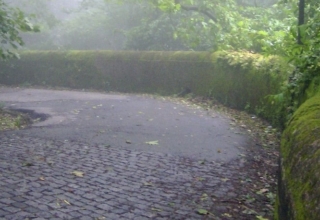
Recognizing Distinctive Sources of Expertise
Appreciation in a collaborative setting also refers to recognition of the distinctive expertise and potentials of people working within this setting. Even in a context of potential competition, appreciation transforms envy regarding the other person’s expertise into learning from this expertise. Personal achievement and individual contribution of expertise is transformed into a sense of overall purpose and the collective valuing of this expertise. The remarkable essayist Roger Rosenblatt (1997, p. 23) revealed just such a process in candidly describing his sense of competition with other writers. He suggests that the sense of admiration for the work of other writers can play a critical role in his own life:
Part of the satisfaction in becoming an admirer of the competition is that it allows you to wonder how someone else did something well, so that you might imitate it—steal it, to be blunt. But the best part is that it shows you that there are things you will never learn to do, skills and tricks that are out of your range, an entire imagination that is out of your range. The news may be disappointing on a personal level, but in terms of the cosmos, it is strangely gratifying. One sits among the works of one’s contemporaries as in a planetarium, head all the way back, eyes gazing up at heavenly matter that is all the more beautiful for being unreachable. Am I growing up?
An appreciative culture is forged when an emphasis is placed on the realization of inherent potential and the uncovering of latent strengths rather than on the identification of weaknesses or deficits. People and organizations “do not need to be fixed. They need constant reaffirmation.” (Cooperrider, 1990, p. 120)
Acknowledging the Value of Diversity
A final mode of appreciation is evident in a collaborative setting when efforts are made to form complementary relationships and recognize the mutual benefits that can be derived from the cooperation of differing constituencies and the valuing of varying sources of expertise. This appreciative strategy requires not only the recognition of diverse perspectives and differing backgrounds, but also the engagement in processes (such as Bohm-based dialogue) that brings about a search for common understanding, non-judgmental acceptance, and potential integration of diverse perspective and accompanying practices.
Yet another paradox is found in the engagement of this appreciative strategy. A culture of appreciative diversity actually provides collective integration (the glue that holds a system together) while the organization is growing and differentiating into many distinctive units of responsibility (division of labor) and geography. (Durkheim, 1933; Lawrence and Lorsch, 1969) The appreciative perspective is particularly important in the era of diversity, when there are significant differences in vision, values or culture among people participating in a collective venture. (Rosinski, 2010)
Expertise-Enhancing Attitudes
Expertise-enhancing structures and processes, embedded in a community of heart, lead to and are accelerated by an attitude of appreciation. What then is an attitude of appreciation? First, it is important to note that attitudes concern the way in which we see the world in which we live and work. Our attitudes guide the narrative we construct about this world and our reason for being in this world. This narrative can be embedded (and stuck) in the past and in the barriers that make an attractive future seem impossible to achieve. As we have already noted with regard to appreciative processes, the narrative can instead be constructed around a desirable future to which our collective energy and expertise can be directed.
Download Article 1K Club

















